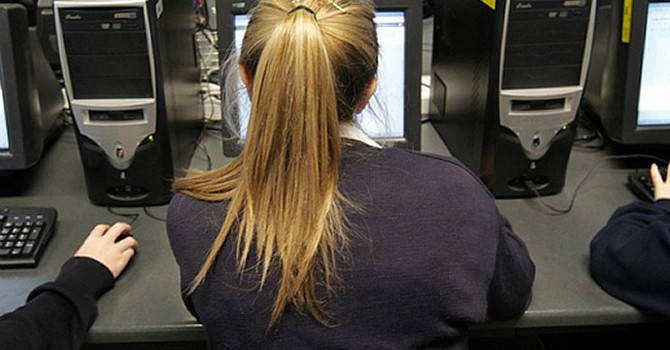The impact of cyberbullying
While cyber bullying often takes place at home and at night, the consequences are often felt in school.
In addition, cyber bullying can be an extension of traditional bullying in school and consequently schools have a role, working with the wider school community, and in particular parents, in tackling this issue.
How does cyberbullying differ from other forms of bullying?
There is no cut off point or safe haven from bullying for many young people as cyber bullying can happen any time and any place.
When young people come home from school and shut their front door, they are still available to become victims of cyber bullying, via text messages, internet chat rooms and an indefinable myriad of constantly evolving social media platforms.
Social barriers have become blurred and in some cases, removed completely as technology means that communications channels are open round the clock.
The anonymity of the internet has developed a psychological blank in many young peoples’ minds with regards to a separation between spoken communications and written communications.
What is the impact of cyberbullying?
- The anonymity that the Internet affords has particular consequences. In most cases, cyber bullies know their targets, but their victims don’t always know the identity of their cyber bullies. This can lead to suspicion and alienation among peers.
- Young people posting messages on the internet do not feel as responsible for their actions as they might otherwise. They are not immediately confronted with the consequences of their actions and they don’t fear being punished for them. The nature of the medium means digital content can be shared and seen by a very wide audience almost instantly and is almost impossible to delete permanently. Young people may not be aware that the nature of cyber bullying provides for a permanent record of the bullying offense which could impact on them in the future.
- Young people are often fearful of reporting incidents, as they fear that adults will take away their mobile phone, computer and/or internet access.
- Like other forms of bullying it can cause stress and anxiety. This can make it more difficult for young people to learn. It can affect concentration levels and decrease ability to focus. In turn, this affects the ability to understand and retain information. For fear of reprisal after class, students who are being bullied can also demonstrate a reluctance to participate in lesson activities or discussions.
- They may feel distracted and pre-occupied with the bullying, spending time thinking of ways to avoid it.
- They may feel a lack of interest and motivation due to feelings of depression or anxiety.
- They might avoid school, complain of regular illness or mitch from classes or activities to avoid the bullying.








